Church of St Anthony, 1559
The oldest church in the city.
We love the tweed in Romania!
And the skies.
But its never easy leaving these guys for a few days.
Six AM, NYC time, I am flying over the
ocean on the way to Bucharest.
No idea what time it is on the
ground.
A few more hours to fly before we get to Warsaw, for
a short layover on the way to Bucharest.
Doesn’t matter.
Time is a blur.
Time is a blur.
People blocking roads doing yoga,
Playing games,
Rejecting work for something
different.
My plane careening through the sky.
I’m off with James and Rob,
Best weekend of the year.
Off to Romania, to parts unknown,
Land of Vampires and mysteries.
Leaving the kids behind.
Reading about Vlad the Impaler.
Ruler of Wallachia.
Vampire tales, Count Dracula.
·
“We learn from failure, not from success!” ...
·
Bram reminded us.
·
But there was so much more:
·
“I am longing to be with you, and by the sea,
where we can talk together freely and build our castles in the air.”
·
Flying, I felt it.
·
Soon we’d all be feeling it.
“There are darknesses in life, and there are lights and you are one of
the lights, the light of all lights.”
Making my way off in Warsaw, connecting with a flight to Romania.
Where I landed a few hour later.
What’s the best way to get to the InterContinental Bucharest, I asked.
Take the bus, the woman exchanging currency advises.
Get off at Piata 21 Decembrie 1989,
Where the students rioted
As the other shoe dropped.
Peace in East Berlin,
Praha
And Violence.
From Velvet Revolution to
The bloodshed of 1989.
I make my way onto the bus.
People are gorgeous here.
Italians sit chatting.
A couple of kids have armbands from Kulturhaus,
One of the cheapest clubs in
town, home to an “exuberant student population…”
I love watching a new city on the
way in.
People ride bikes.
Jump on and off t he
bus.
The landscape from the airport to
the city,
Rustic, old shops,
Beautiful old buildings.
Lush trees.
Perhaps Nicolae Ceausescu didn’t destroy the city?
The old city dancing with he
new.
The bus driver drops me off at the Intercontinental
Hotel
That over looked the revolution of 1989.
You feel the revolution every day here, especially
from up here looking down from the old hotel.
Revolutions
scare me.
Heads
roll.
People
get slaughtered.
Sometimes
great things happen.
Depending
on which side
you are
on.
Many watched from our hotel.
The New York Times notes:
“Romania’s first skyscraper, the
257-room InterContinental Bucharest(4 Bulevardul Nicolae Balcescu),
opened in 1971, towering over University Square, a location convenient for
walking or taking the subway to many sites. All the rooms have balconies, which
is one reason it was favored by the foreign press corps that gathered in 1989
to watch the unfolding revolution against the Ceausescu regime. The décor still
feels like a pleasant relic of the 70s with a few updates.”
I was supposed to meet Rob and
James in the lobby.
But neither are anywhere to be seen.
So I walk up to the room on the 14th
floor.
They are both out on the lobby
taking in a smoke and a glass of wine.
I take the scene – my two buddies
who know me better than anyone.
Laughing to myself.
Stop time for a moment.
Remember.
Hold it.
Take it in.
The first drink is always the best
with these guys.
And then it degenerates from there.
Rob is talking about
Vlad the Impaler, his travels in Transylvania and his friend, Andrei Cordescu, the Romanian poet he met in New Orleans, who left the
country a half century ago.
After1989, he reflected on life in post communist Romania:
“On
the one hand, the cafés in the cities were full of young people with cell
phones, the streets were full of color, the beaches were crowded with fine --
topless -- bodies, and villas under construction dotted the countryside. On the
other hand, old folks crowded the churches hoping for a miracle so that they
could eat.”
Looking
out the city, we talk about the revolution and the gorgeous people who are
everywhere.
“The
young are Romania's best hope,” notes Codrescu.
“They
are not afraid, they don't whisper, slouch or hide. They are outspoken, in your
face, and they will eventually replace the still-scared old folks. Families are
pretty close, but attitudes are worlds apart between the old and the young.”
Over
the next two days, we’ll make friends and chat with many of them.
No
one throws shade.
No
one shows hostility.
We
try to make sense of it all.
Walking
out for dinner at Argentin,
where we lose Rob,
Off to get some cash.
He’s found somewhere
else to go,
Leaving an email
message.
He doesn’t carry a phone
or so he says.
But he can email us.
As we’re taking in
glass after glass of red wine,
Eat like Anthony Bourdaine, Rob’s found a wine bar.
The food at Argentin
more than suffices.
The
description is not far off.
Finally,
we find Rob, who decided not to look for us at the Argentin across town.
Instead
he’s just down the street.
That’s
good.
And
we’re ok.
It
all gets a little messy.
He’s
telling us about Romania wine,
Of
which he’s become a sort of connoisseur.
They don’t export any of it, he repeats over and over again.
They don’t export any of it, he repeats over and over again.
Splitting
another bottle.
Time
for bed.
We
spa in the morning.
Chatting
about our lives,
Swimming,
Hot
and cold,
Hot
and cold.
Schvitzing.
Making
out way out into the city, walking through the old quarter,
To
Hanul cu Tei.
Stopping
for a coffee at the Urbanist.
We
love the city.
A
statue of Romulus and Remus.
What’s
that doing here?
Rome
– Romania.
Oh
yea.
Empires
fall, but founders remain.
Dipping
our head into the Church of St Anthony, 1559.
The
oldest church in the city.
Off
to Linden Tree Inn.
And
then a stop at the National Museum of History,
Reflecting
on Romans and history.
Trajan’s
Colum tells the story of Trajan’s days.
But
how did it get here?
Shedding
off one empire after another, it wasn’t until the Paris treaty of 1918 that
Romania
enjoyed independence.
And
then a second world war
And
then another empire.
And
then 1989.
Off
to Caru Cu Beer,
An
ageless beerhall that seems to have escaped bombs and revolutions,
Germans
and Russians – everyone loves a beer.
Where
we talk about our fates,
The
fates of revolutions, that start off well.
Many
thought that the Ceausescus started
off well enough.
But things got dark.
He took more and more from the
people until they took his life.
Rob
and I talk about mentors and friends.
He
recalls, our old Claremont Philosophy Professor, Pomona College’s.
Before the famously amiable prof
Shuffled off,
he ruminated about the tensions we
feel with history and our quest for human liberation.
They felt very prescient here.
“Well that's what these kids see about Marx
and Lenin, their idea of destroy and change, and then we get the ideal, the
perfect society and the perfect happy person. The kids now see that violence is
self-destructive so many times. They very clearly get the idea that when you
take away the subjugation of the workers on the factory line that it doesn't
necessarily mean the workers are not going to want power, or that they're all
going to agree to let everything be equal.
And you see that Marx and Lenin thought they really had an answer how to change that. Even Freud did. It was the great era for that. They had scientific ability finally, whereas they had just been the victims before. Now they had the power for change in their hands! Prometheus seizing the power from the Gods. These kids really don't believe that anymore.
We created a new society, a great society, but we decided to compromise with slavery, which was totally against the American founding ideals. The founders knew it, but they just didn't think they could found the nation unless they accepted it. Then the things that they agreed to accept later became intolerable and caused the greatest destruction in American history, the Civil War.
How do you regard the problems of liberation and freedom? What are your thoughts in relation to the course you're teaching? What was the title again?
Philosophies of Liberation and Revolution. We start with Marx and go through the women's revolution, which I've written a book on. Then South American Liberation Theology—which is amazing because the Catholic Church in South America has never been liberal. It's always been identified with the regimes and somehow they managed to get a liberation movement going in South America, which was just incredible.
We had a policy of isolationism in America earlier because we thought we could isolate ourselves. There was a point in that, but now, ever since September 11 we know we can not isolate ourselves from the rest of the world, period.
My father came from persecution and wanted us to know nothing of it, and never spoke of his childhood in Russia.
Yes. Philosophy went through the same thing—thinking they had final answers. Remember, Hegel thought he had the ultimate system. All of the contradictions would lead to progress. He thought he could bring all the world's religions together.
Well, of course, Freud is part of this because he thought he had the secret of the unconscious and could understand and change all its destructive powers. We don't really believe that anymore. Jung certainly didn't. Wittgenstein thought he could make philosophy whole and finalized. We could finalize Truth in literal words. And Marx understood Hegel. Hegel was the ultimate, with his system of the dialectic. All that Marx did was to say it was the material that drove the dialectic and not the spiritual. Therefore you had to control the material forces. It's a great insight, if you can do it.
Yes. The only problem is that when you get a balance of power, then you have a very difficult time getting things done because you need to get agreement from widely different sides. That's why you get the dictatorships, and some of them are very effective. They won't allow that kind of discussion because it's not easy or efficient. Then the problem is they use their power not to improve the nation but end up using it simply for themselves…
And you see that Marx and Lenin thought they really had an answer how to change that. Even Freud did. It was the great era for that. They had scientific ability finally, whereas they had just been the victims before. Now they had the power for change in their hands! Prometheus seizing the power from the Gods. These kids really don't believe that anymore.
We created a new society, a great society, but we decided to compromise with slavery, which was totally against the American founding ideals. The founders knew it, but they just didn't think they could found the nation unless they accepted it. Then the things that they agreed to accept later became intolerable and caused the greatest destruction in American history, the Civil War.
How do you regard the problems of liberation and freedom? What are your thoughts in relation to the course you're teaching? What was the title again?
Philosophies of Liberation and Revolution. We start with Marx and go through the women's revolution, which I've written a book on. Then South American Liberation Theology—which is amazing because the Catholic Church in South America has never been liberal. It's always been identified with the regimes and somehow they managed to get a liberation movement going in South America, which was just incredible.
We had a policy of isolationism in America earlier because we thought we could isolate ourselves. There was a point in that, but now, ever since September 11 we know we can not isolate ourselves from the rest of the world, period.
My father came from persecution and wanted us to know nothing of it, and never spoke of his childhood in Russia.
Yes. Philosophy went through the same thing—thinking they had final answers. Remember, Hegel thought he had the ultimate system. All of the contradictions would lead to progress. He thought he could bring all the world's religions together.
Well, of course, Freud is part of this because he thought he had the secret of the unconscious and could understand and change all its destructive powers. We don't really believe that anymore. Jung certainly didn't. Wittgenstein thought he could make philosophy whole and finalized. We could finalize Truth in literal words. And Marx understood Hegel. Hegel was the ultimate, with his system of the dialectic. All that Marx did was to say it was the material that drove the dialectic and not the spiritual. Therefore you had to control the material forces. It's a great insight, if you can do it.
Yes. The only problem is that when you get a balance of power, then you have a very difficult time getting things done because you need to get agreement from widely different sides. That's why you get the dictatorships, and some of them are very effective. They won't allow that kind of discussion because it's not easy or efficient. Then the problem is they use their power not to improve the nation but end up using it simply for themselves…
It seems to me we're back to our
friend, Socrates. Socrates said that philosophy's job was to continue to ask
the questions. To discuss the questions, but not to try to provide answers. I
think philosophy left that. It seems to me that what we're back to needing
people who simply don't accept doctrines as final, and who recognize that there
are many questions, and that we need to discuss the questions without demanding
the answers.
America was really fairly close to that, in a sense, because they didn't want doctrines to gain absolute authority. You see, they managed to tolerate religions that they didn't agree with. The Mormons are an illustration. The Quakers are an example. Someone comes up with a new idea, and we discuss that. But we don't demand absolute certainty. Can we learn to get along without that certainty?
We have to teach the president some of that, because Texans like a degree of certainty. They think they have it, and they want to stand for it. That's a very nice thing, but if it gets you so you can't be co-operative, you can't stand to compromise with ideas that are different from yours, then you've got a problem. It's always been a problem in the U.S., but we have managed pretty well. We have tolerated a lot. Seems to me we need to get back more to that.
The Capitalists—Capitalism is not terrible—but it can't be taken as an absolute fixed doctrine, which requires of anybody who believes himself to be an American complete support and no criticism. It seems to me we need to go back to the place where Americans are searching for the answers and want to discuss them without necessarily believing they are going arrive at a final conclusion.”
America was really fairly close to that, in a sense, because they didn't want doctrines to gain absolute authority. You see, they managed to tolerate religions that they didn't agree with. The Mormons are an illustration. The Quakers are an example. Someone comes up with a new idea, and we discuss that. But we don't demand absolute certainty. Can we learn to get along without that certainty?
We have to teach the president some of that, because Texans like a degree of certainty. They think they have it, and they want to stand for it. That's a very nice thing, but if it gets you so you can't be co-operative, you can't stand to compromise with ideas that are different from yours, then you've got a problem. It's always been a problem in the U.S., but we have managed pretty well. We have tolerated a lot. Seems to me we need to get back more to that.
The Capitalists—Capitalism is not terrible—but it can't be taken as an absolute fixed doctrine, which requires of anybody who believes himself to be an American complete support and no criticism. It seems to me we need to go back to the place where Americans are searching for the answers and want to discuss them without necessarily believing they are going arrive at a final conclusion.”
Right on.
Thank you Fred and Rob,
James and Romania.


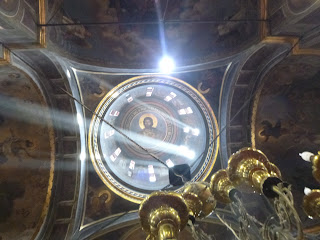



































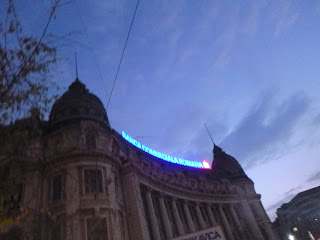



















































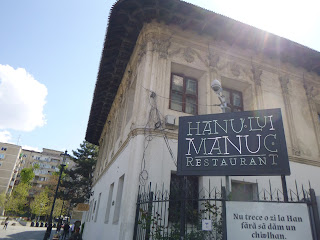














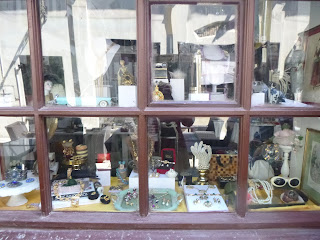























































































































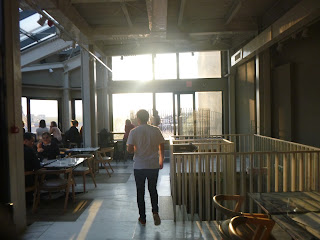





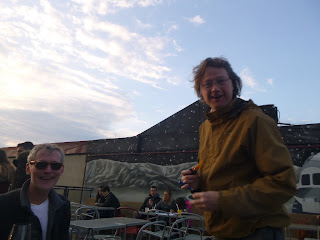






















No comments:
Post a Comment